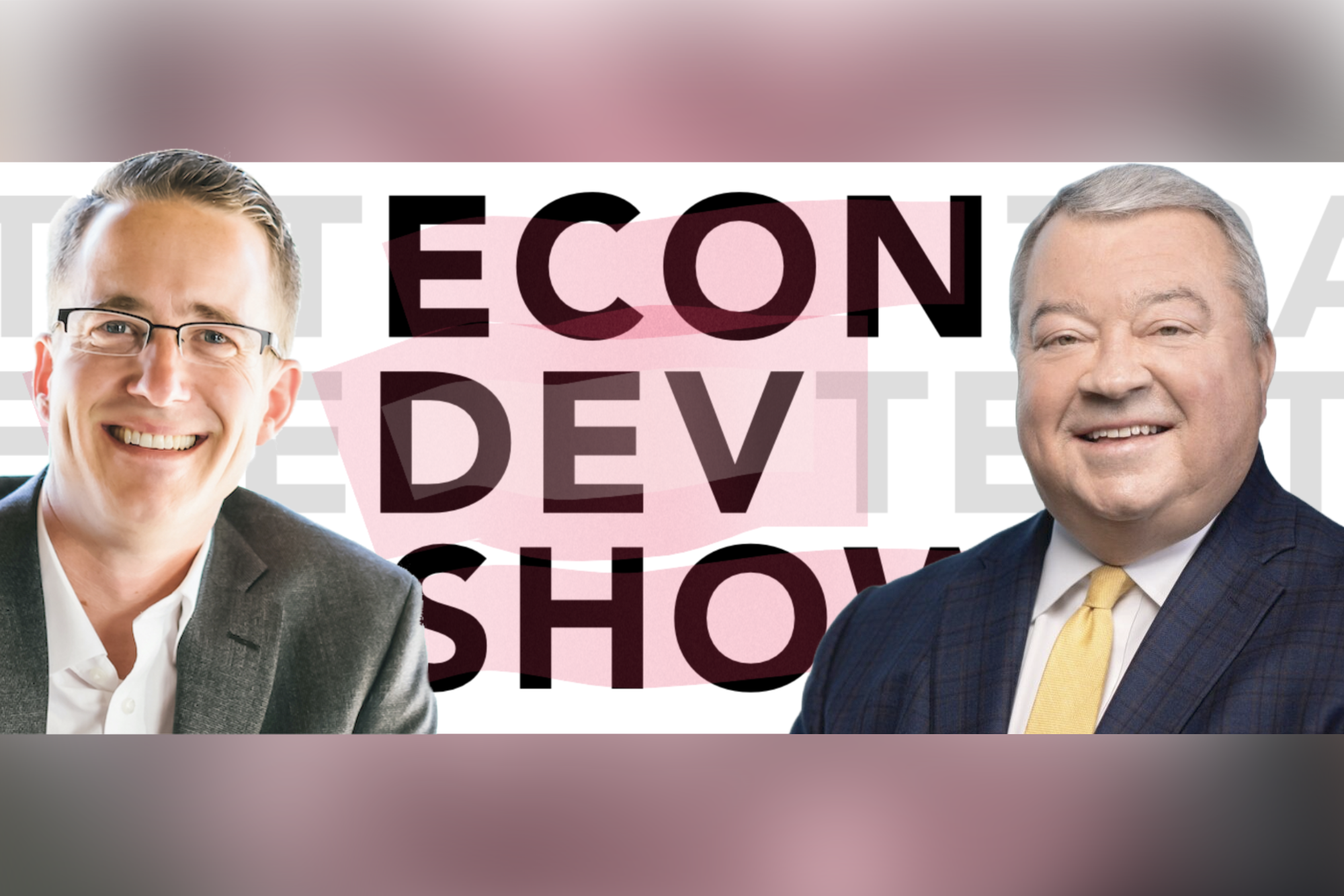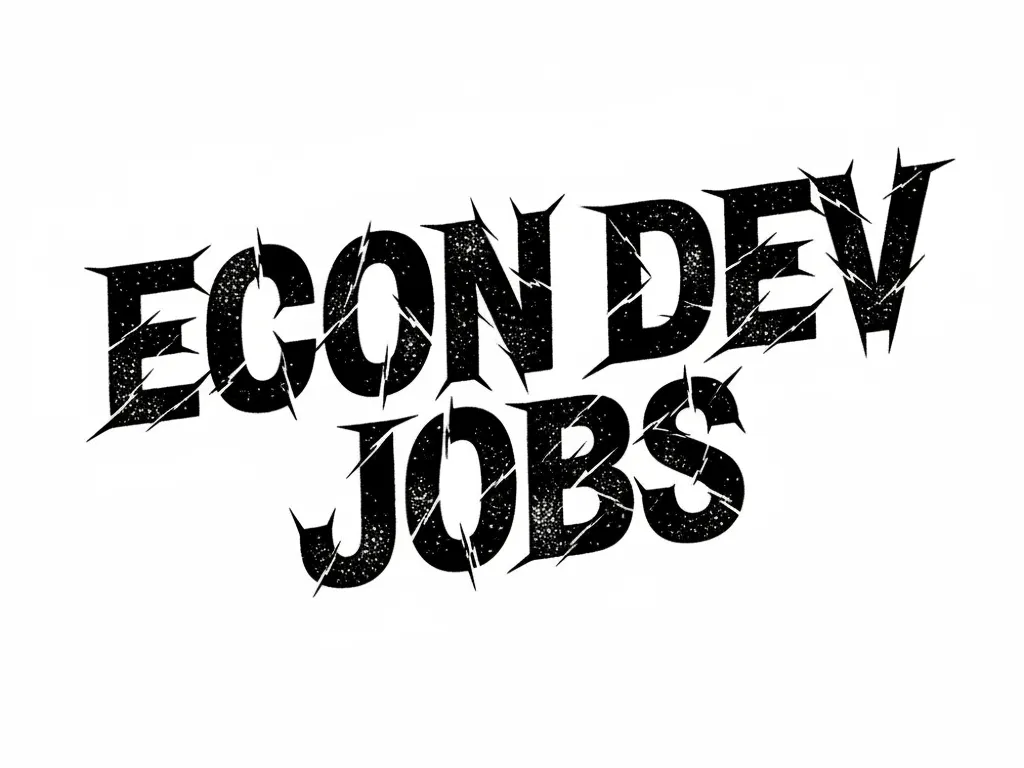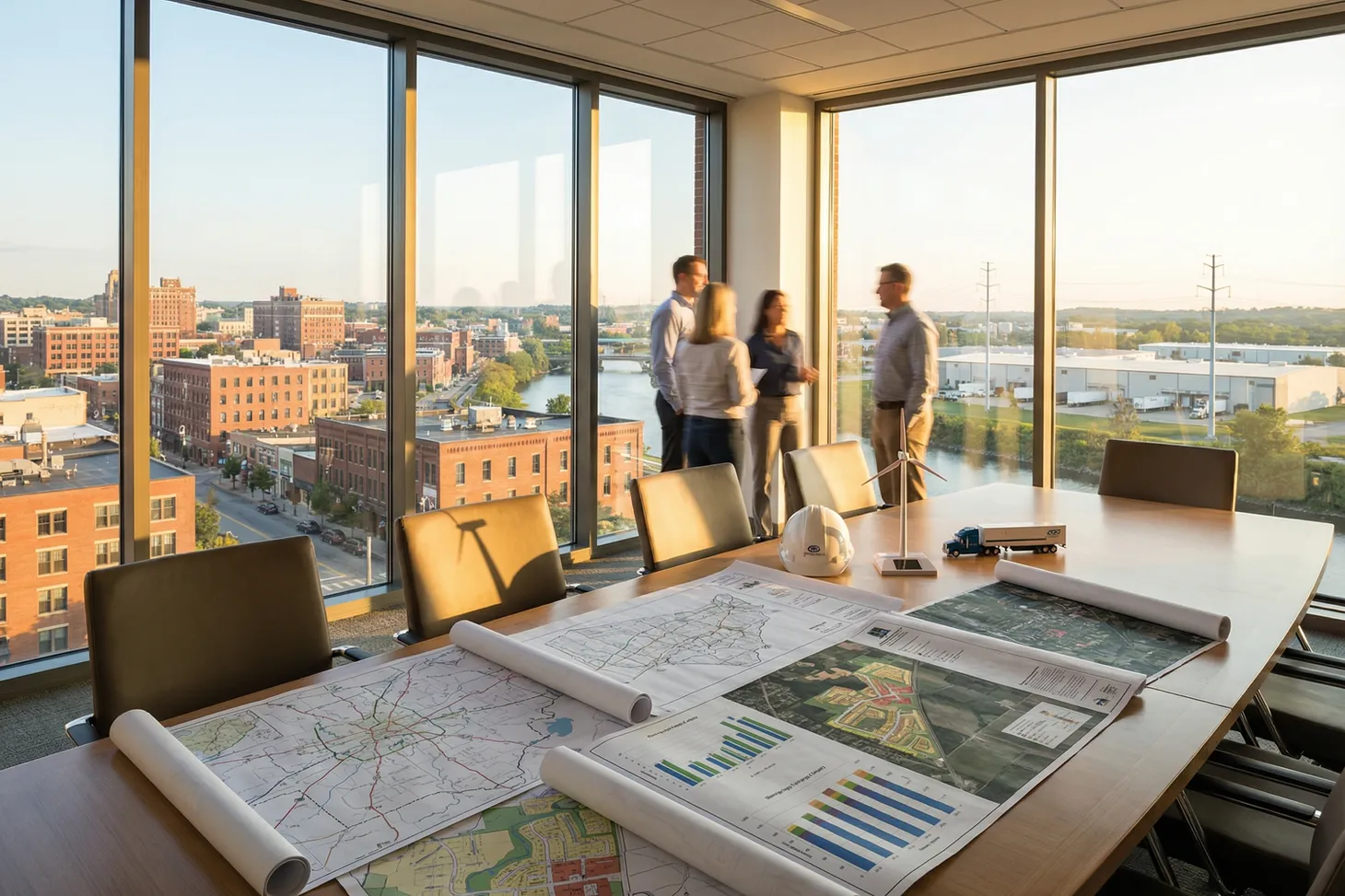Podcast Episode #130: Talking Economic Development in Alabama with Greg Canfield
A discussion with Alabama's economic maestro

Table of Contents
In episode 130 of the Econ Dev Show, Dane Carlson interviews Greg Canfield, former Secretary of Commerce for the state of Alabama.
Sponsor
Sitehunt is Dane's AI-enhanced platform that helps economic developers build a comprehensive property database and respond to RFIs. Request a demo.
Description
In this episode of the Econ Dev Show, Dane Carlson interviews Greg Canfield, who currently serves as the Managing Director of Economic Development at Burr & Forman.
Greg previously served 12 years as Secretary of Commerce for the state of Alabama. Their conversation covers Greg's career journey, and the complexities of economic development.
Greg shares how he transitioned from local politics, serving as the president of a city council, to becoming the head of Alabama’s Department of Commerce. He highlights the importance of building strong relationships, understanding the needs of businesses, and fostering an environment conducive to economic growth. Greg emphasizes the significance of adapting to changing circumstances, especially in the context of the global pandemic, which has forced many economic developers to rethink their strategies and approaches.
The discussion also touches on the challenges Greg faced during his tenure, such as the global economic downturn, and how quick decision-making and consultation with influential figures helped him navigate these obstacles. Additionally, Greg provides insights into the future of economic development, stressing the need for resilience, digital infrastructure, and workforce development.
Actionable Insights for Economic Developers
- Embrace Flexibility
Adapt to changes in professional norms and work environments post-COVID-19. This means being open to remote work, flexible hours, and new ways of engaging with stakeholders. - Continuous Learning
Be open to learning new aspects of economic development, even if it's not your initial career path. This could involve attending workshops, enrolling in courses, or staying updated with the latest industry trends and technologies. - Build Relationships
Establish strong connections with local businesses and stakeholders. This involves regular communication, understanding their needs, and building trust through consistent and supportive interactions. - Understand Local Needs
Tailor economic development strategies to meet the specific needs of your community. Conduct surveys, hold town hall meetings, and engage with community leaders to gather insights and address local issues effectively. - Quick Decision-Making
Be prepared to make informed decisions quickly when new opportunities arise. Develop a framework for rapid assessment and decision-making to capitalize on emerging opportunities efficiently. - Consult Influential Figures
Seek advice from experienced and influential individuals in the field. Build a network of mentors and advisors who can provide guidance and share their experiences to help navigate complex situations. - Promote Business-Friendly Policies
Advocate for policies that create a favorable business environment. Work with local and state governments to develop incentives, reduce regulatory burdens, and support business growth and innovation. - Leverage Local Leadership Roles
Utilize positions in local governance to influence economic development. Engage in local politics, join economic development boards, and collaborate with municipal leaders to drive initiatives that benefit the community. - Adopt Best Practices
Learn from other successful economic development initiatives. Study case studies, attend industry conferences, and participate in peer networks to identify and implement best practices in your own community. - Foster Community Engagement
Engage the community in economic development plans to ensure broad support and understanding. Involve residents in planning processes, create inclusive forums for discussion, and maintain transparency in decision-making.
Episode Links
- Burr & Forman
- Greg Canfield | LinkedIn
- Greg Canfield | Burr & Forman LLP
- Made in Alabama: Alabama Department of Commerce
- The ONE Thing: The Surprisingly Simple Truth About Extraordinary Results by Gary Keller
- Buffalo Hunting in Alabama: A Novel by Don Erwin
Other Sponsors
Edited Transcript
(This is an experimental AI edited transcript.)
Dane Carlson: Welcome back to the Econ Dev Show. Today we're here with Greg Canfield. Greg is currently the managing Director of Economic Development at Burr & Forman. Prior to that, he served 12 years as Secretary of Commerce for the state of Alabama. Greg, welcome to the show.
Greg Canfield: Thank you, Dane. I'm glad to be here.
Dane Carlson: Well, I'm glad to have you and I'm glad that we got that microphone snafu sorted out. Of the two of us, you mentioned I'm the only one wearing a tie.
Greg Canfield: Well, that's right. I try to avoid wearing ties unless I absolutely have to these days.
Dane Carlson: Well, I appreciate that and, uh, I did mention that although I'm wearing a tie, I am wearing shorts, and you know, that's, I think, one of the post-COVID benefits that we all have from time to time.
Greg Canfield: You have to take advantage of the circumstances while you can, right.
Dane Carlson: Absolutely. So we all know you because you were the head of the Alabama Department of Commerce. So my question for you is, did you grow up as a little boy hoping that one day you would run a Department of Commerce?
Greg Canfield: Who in their right mind ever believes that they're gonna grow up moving into economic development when they're a small child, right? And I'm no different than anyone else in that regard, Dane. I didn't even know what economic development was, even though I think I was practicing economic development when I was president of a city council here in Alabama. We just didn't think of it in professional terms. But, you know, I think obviously given the chance when then-Governor Robert Bentley asked me to take on this role, I did a lot of quick study and I reached out to some important people in my life to bounce off them this opportunity and what it really meant.
Dane Carlson: So, when you were president of the city council, you were essentially doing economic development work without realizing it. What were some of the key initiatives or projects you were involved in during that time?
Greg Canfield: We were focused on community development projects that improved the quality of life for our residents. This included infrastructure improvements, attracting new businesses to the area, and supporting local entrepreneurs. It was about creating an environment where people wanted to live and work, even though we didn't label it as 'economic development' back then.
Dane Carlson: That makes a lot of sense. Fast forward to your role as Secretary of Commerce for Alabama, what were some of the major challenges you faced, and how did you overcome them?
Greg Canfield: One of the major challenges was the global economic downturn that impacted everyone. We had to find ways to keep Alabama competitive and attractive to businesses. This involved working on incentives, improving our workforce development programs, and ensuring we had the infrastructure to support growth. We also focused a lot on building relationships with existing businesses to understand their needs and help them expand.
Dane Carlson: Relationships seem to be a recurring theme in your approach. Can you talk more about how you built and maintained these relationships?
Greg Canfield: Absolutely. Building relationships is crucial in economic development. It's about trust and mutual benefit. I spent a lot of time meeting with business leaders, community leaders, and even international partners. Listening to their needs and concerns and then finding ways to address them was key. Regular communication and follow-up were also important to show that we were committed to their success.
Dane Carlson: Looking at the current landscape, how has COVID-19 changed the field of economic development, and what should professionals be focusing on now?
Greg Canfield: COVID-19 has accelerated many trends that were already happening, such as remote work and the need for digital infrastructure. Economic developers need to focus on creating resilient economies that can withstand such shocks. This includes investing in broadband, supporting local businesses, and being adaptable to changing conditions. Workforce development also remains critical, as the skills needed are evolving rapidly.
Dane Carlson: That's insightful. Finally, if you could give one piece of advice to someone new to economic development, what would it be?
Greg Canfield: I would say be curious and open to learning. Economic development is a complex field that touches on many aspects of community and business life. Stay informed, build your network, and always be ready to adapt to new challenges and opportunities.
Dane Carlson: That's great advice, Greg. Speaking of challenges, during your tenure as Secretary of Commerce, what were some of the most significant projects or achievements that you're proud of?
Greg Canfield: There are several projects that come to mind. One of the most significant was the recruitment of major automotive manufacturers to Alabama, such as Toyota and Mazda. This was a game-changer for the state's economy, bringing in thousands of jobs and billions in investment. We also worked hard on expanding the aerospace industry in Alabama, which included supporting companies like Airbus and Boeing. Another proud achievement was the development and implementation of Alabama's Strategic Economic Development Plan, which set a clear vision and goals for the state's economic growth.
Dane Carlson: That's impressive. How did you approach these large-scale projects and ensure their success?
Greg Canfield: It was a combination of factors. First, having a clear and strategic plan was crucial. We set specific targets and identified key industries to focus on. Secondly, collaboration was key. We worked closely with local governments, educational institutions, and the private sector to create a unified approach. Thirdly, offering competitive incentives and ensuring we had the infrastructure in place to support these large projects were also critical components. Lastly, continuous follow-up and support for these companies were essential to maintain strong relationships and help them succeed in Alabama.
Dane Carlson: It sounds like a lot of hard work and coordination. How do you see the future of economic development evolving, especially with technological advancements and changing global dynamics?
Greg Canfield: The future of economic development is definitely being shaped by technology and globalization. Economic developers need to stay ahead of these trends by embracing innovation and focusing on industries that are poised for growth, such as tech and renewable energy. Additionally, creating smart cities with advanced infrastructure and connectivity will be crucial. Workforce development will continue to be a top priority, as the skills required are constantly evolving. Another important aspect is sustainability. Economic developers must balance growth with environmental responsibility to ensure long-term prosperity.
Dane Carlson: Absolutely. What are some specific strategies that economic developers can implement to foster innovation and sustainability in their communities?
Greg Canfield: To foster innovation, economic developers should create ecosystems that support startups and tech companies. This can include providing access to funding, offering mentorship programs, and creating innovation hubs or incubators. For sustainability, it's important to promote green practices and invest in renewable energy projects. Encouraging businesses to adopt sustainable practices and providing incentives for doing so can also make a big difference. Additionally, incorporating sustainability into community planning and development projects ensures that growth is managed responsibly.
Dane Carlson: Those are very actionable strategies. Before we wrap up, is there anything else you'd like to share with our listeners?
Greg Canfield: I'd like to emphasize the importance of adaptability. The field of economic development is always changing, and those who are willing to adapt and embrace new ideas will be the most successful. Stay connected with your community, continue to build relationships, and be proactive in addressing challenges. Economic development is about creating opportunities and improving the quality of life for everyone in the community, and that requires dedication and continuous effort.
Dane Carlson: Thank you so much, Greg, for sharing your insights and experiences with us. It's been a pleasure having you on the show.
Greg Canfield: Thank you, Dane. It's been great to be here.
Dane Carlson: And to our listeners, thank you for tuning in to another episode of the Econ Dev Show. If you enjoyed this episode, please leave us a review and share it with your network. Until next time!
Econ Dev Show Newsletter
Join the newsletter to receive the latest updates in your inbox.


